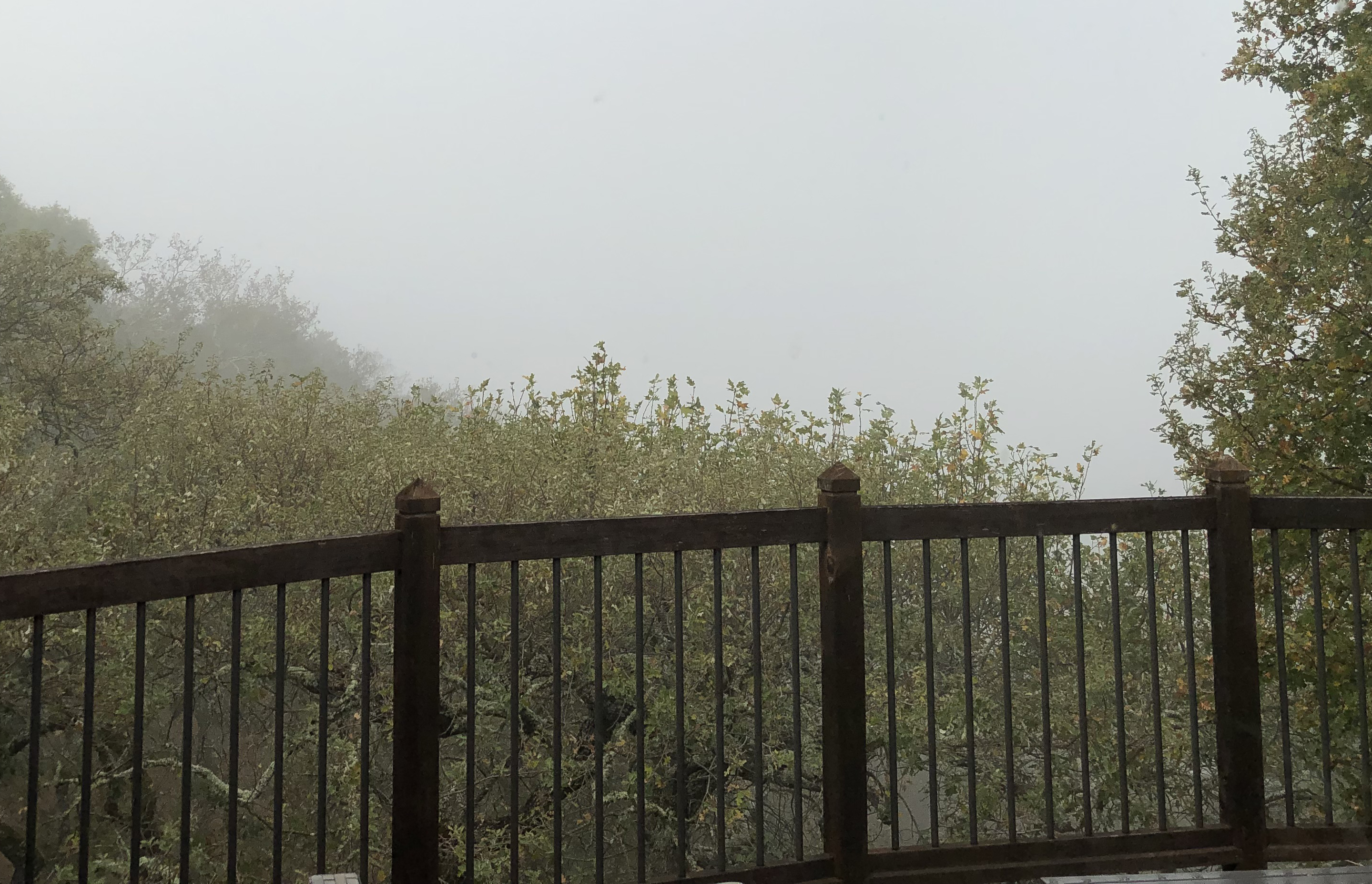 Smoke from the fires in Butte County completely obscure the hills that would normally be visible in this photo. Photo by Susan Barnes
Smoke from the fires in Butte County completely obscure the hills that would normally be visible in this photo. Photo by Susan Barnes On Monday this week, I was driving to lunch when I heard, live on the radio, the last few minutes of the landing of NASA’s InSight lander on Mars. It was a suspenseful few minutes, and I could hear the emotion in the voices of the announcers as the good news started to come in. The heat shield successfully separated. The telemetry looked good. The lander located the ground and approached at a reasonable speed.
Unexpectedly, I found my eyes growing misty. Human beings had, once again, against stiff odds, managed to do something that would have been impossible in my parents’ childhood. A lander had been deployed on another planet, and it gave me great hope about what we can accomplish when smart people work together to find a solution to a complex problem.
On Wednesday last week, I was grateful for the rain that finally cleared out the dense smoke and debris from the air that was plaguing the community where I live since shortly after the wildfire in Butte County started. It made my eyes water, it made my chest feel tight, and it kept me indoors, even more than usual for an indoors type like me.
The three largest wildfires in California history have occurred in the last 12 months. Many of us believe these large wildfires have been caused, at least in part, by climate change, with fuel loads increased after the recent long drought in the state.
Last Friday, the Intergovernmental Panel on Climate Change released a special report that states, “Warming from anthropogenic emissions from the pre-industrial period to the present will persist for centuries to millennia and will continue to cause further long-term changes in the climate system, such as sea level rise, with associated impacts.” In other words, climate change is here to stay.
Is it any wonder, then, that after seeing the devastation of these recent wildfires, and the release of this report that seems to say they’re only going to get worse while the President continues to deny the need to do anything about it, that I got a bit emotional about the triumph of human endeavor over long odds embodied in the InSight Mars landing?
In Breshit (Genesis) 1:26 we read, “And God said, ‘Let us make a human in our image, after our likeness, and they shall rule over the fish of the sea and over the fowl of the heaven and over the animals and over all the earth and over all the creeping things that creep upon the earth.’”
Some say this passage means that since God gave the world to us to rule over, we have every right to do anything we want with it, including causing mass extinctions and climate change. Others say this passage means that, since we were made in God’s image, we are responsible for trying to behave like a benevolent ruler, and are tasked with taking great care of the earth and all the living beings on it.
Given the evidence I’ve seen over the last 20 years or so, I’m not overly optimistic that we’re going to have the will to try to stop climate change before it gets much worse than it already is. I’m even less certain that we’ll ever find a way to reverse it, and return the earth to a pre-industrial “normal.” I have long thought the only way to save humankind may be to find a way to get off this planet, to colonize elsewhere, so our descendants can learn from our mistakes and do better on other worlds in our solar system and others.
So part of my emotion about the success of the Mars landing is not just about the triumph of mind over matter. It’s also a hope, however small, that it will be followed by a viable, self-sustaining human colony on Mars, as a first step toward human colonization on other planets in other star systems. It may seem like a far-fetched thing, but I fear that if we don’t soon change course, it may be our only hope for the human species to thrive, rather than to just try to survive trapped on a harsh, weather-beaten earth.























 More news and opinions than at a Shabbat dinner, right in your inbox.
More news and opinions than at a Shabbat dinner, right in your inbox.